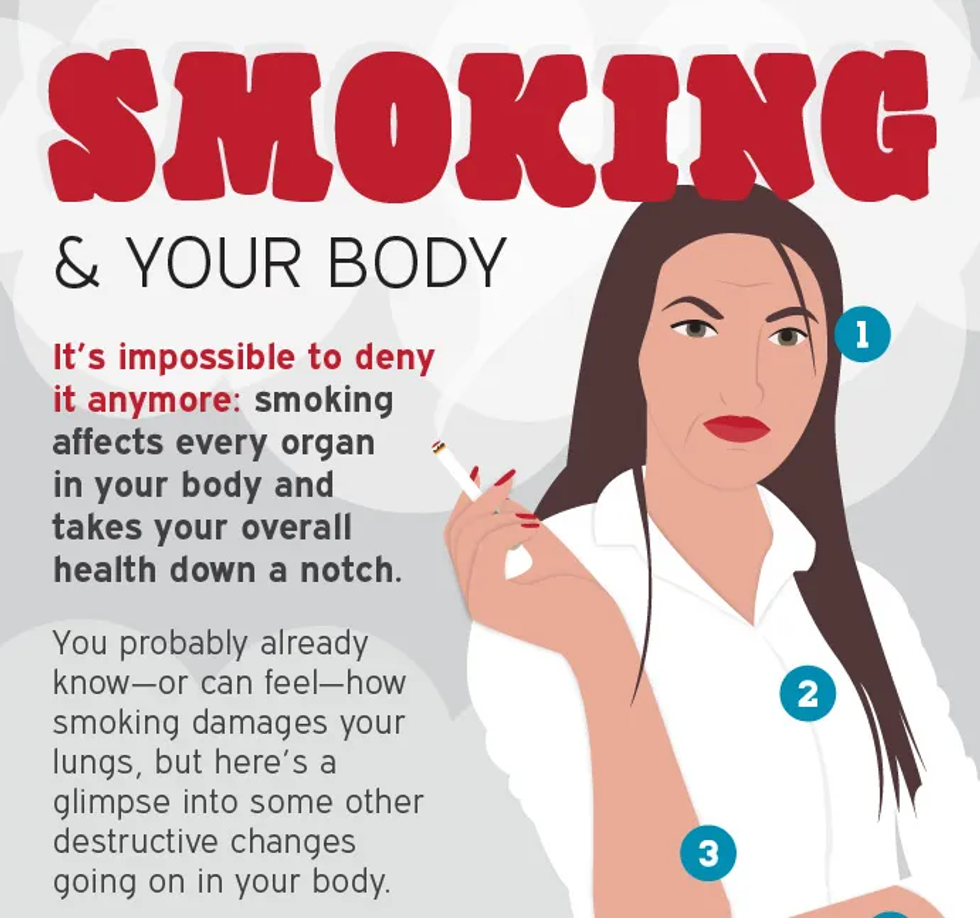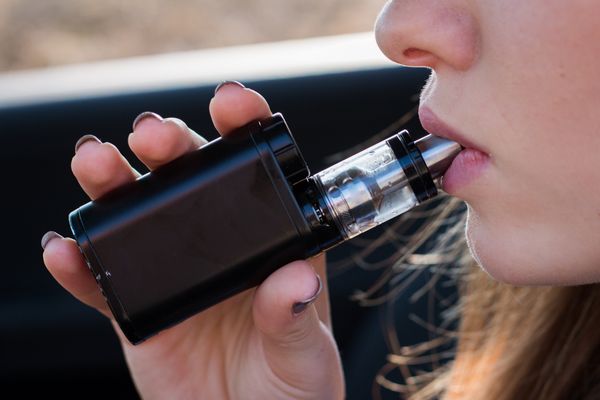At this point, it's pretty clear to most people that smoking cigarettes is one of the worst decisions you can make when it comes to your health. Yet despite the ever increasing knowledge surrounding the negative consequences of smoking, many women continue to fuel their cigarette habit. In fact, 20 million adult women and 1.3 million girls in the United States were smokers in 2011. Of those smokers, around 174,000 die each year as a direct result of tobacco use.
What are the consequences?
It's no secret that smoking wreaks havoc on your body. By inhaling cigarette smoke regularly, you're putting yourself at risk for heart disease, cancer, autoimmune diseases, osteoporosis, poor circulation, failing vision and fertility issues. If you smoke while pregnant, you're also putting your child at risk for a multitude of complications, like cleft palate, sudden infant death syndrome, low birth weight and many other problems.
Smoking can also affect the way you look. Cigarette smoke deprives your skin of oxygen and nutrients, which can leave you with pale or uneven skin tone. The chemicals in smoke break down collagen and elastin, making your skin more likely to sag and wrinkle. Age spots, fine lines, yellow teeth and gums, stained fingers and hair loss are also common in frequent smokers. That's not to mention that the smell of smoke permeates your skin and clothes, sticking with you even when you don't have a cigarette in hand.
What happens when you quit?
The majority of smokers say they want to quit smoking, but it's a lot easier said than done. But it's worth the effort. Within the first few days, months and years of quitting, you'll notice a variety of benefits, from increased lung capacity to greatly reduced risks for heart disease and stroke. One reason why many women are afraid to quit smoking, however, is because weight gain can happen within the first year, because smoking suppresses appetite. Women gain an average of about 10 pounds after they quit, but you can avoid this by ensuring that you eat healthy meals and exercise regularly after you stop.
With multiple forms of support and plenty of resources to help you quit smoking, there's really no reason for you to continue doing it, especially when you know how much it's affecting your body. If you need help quitting or have questions, talk to your health care provider.








